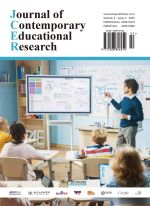Cultural Memory in Sounds: A Musical Anthropological Interpretation of the Newly Composed Guangdong Han Opera “Tianfeng Haiyu Meihuadu”
Abstract
This paper employs the theories and methods of music anthropology to conduct a deep analysis of the newly composed Guangdong Han Opera “Tianfeng Haiyu Meihuadu.” By exploring its musical forms, performance rituals, and the cultural connotations of the Hakka people, it reveals the unique cultural memory embedded in the musical aspects of the opera. The study finds that “Tianfeng Haiyu Meihuadu” is not only a representative work of the newly composed Guangdong Han Opera but also an important carrier of Hakka cultural inheritance and dissemination. Its music and performance are closely linked to the history, emotions, and social life of the Hakka people, providing a vivid example for understanding the characteristics of Hakka culture and the functions of musical culture.
References
Xiao M, 2010, Horizons of Ethnomusicology: Music in Global Cultural Perspective, Shanghai Conservatory of Music Press, Shanghai.
Zhou K, 2003, Research on Guangdong Han Opera, Guangdong Higher Education Press, Guangdong.
Tan Y, 2006, Hakka Scripture: A Cultural History of a Great Migrating Ethnic Group, South China University of Technology Press, Guangzhou.
Yang M, 2008, An Introduction to the Methodology of Music Ethnography: Using Chinese Traditional Music as an Example, Central Conservatory of Music Press, Beijing.
Xiang Y, 2001, Research on Shanxi Music Households, Cultural Relics Publishing House, Beijing.

